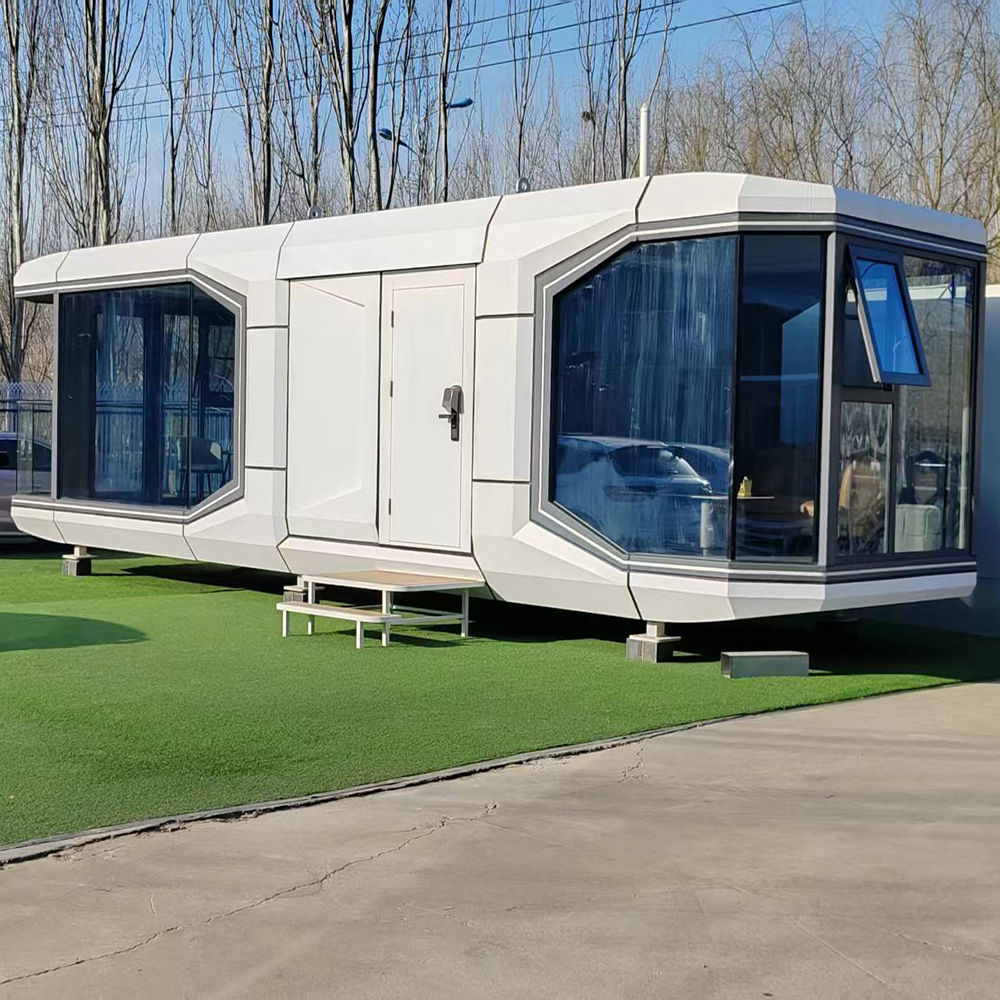-
E-mail
Austin120521@outlook.com -
E-mail
sales@jujiuhouse.com -
Telephone
+86-17864099991 -
Telephone
+86-17854044442
- Chinese
- French
- German
- Portuguese
- Spanish
- Russian
- Japanese
- Korean
- Arabic
- Irish
- Greek
- Turkish
- Italian
- Danish
- Romanian
- Indonesian
- Czech
- Afrikaans
- Swedish
- Polish
- Basque
- Catalan
- Esperanto
- Hindi
- Lao
- Albanian
- Amharic
- Armenian
- Azerbaijani
- Belarusian
- Bengali
- Bosnian
- Bulgarian
- Cebuano
- Chichewa
- Corsican
- Croatian
- Dutch
- Estonian
- Filipino
- Finnish
- Frisian
- Galician
- Georgian
- Gujarati
- Haitian
- Hausa
- Hawaiian
- Hebrew
- Hmong
- Hungarian
- Icelandic
- Igbo
- Javanese
- Kannada
- Kazakh
- Khmer
- Kurdish
- Kyrgyz
- Latin
- Latvian
- Lithuanian
- Luxembou..
- Macedonian
- Malagasy
- Malay
- Malayalam
- Maltese
- Maori
- Marathi
- Mongolian
- Burmese
- Nepali
- Norwegian
- Pashto
- Persian
- Punjabi
- Serbian
- Sesotho
- Sinhala
- Slovak
- Slovenian
- Somali
- Samoan
- Scots Gaelic
- Shona
- Sindhi
- Sundanese
- Swahili
- Tajik
- Tamil
- Telugu
- Thai
- Ukrainian
- Urdu
- Uzbek
- Vietnamese
- Welsh
- Xhosa
- Yiddish
- Yoruba
- Zulu
- Kinyarwanda
- Tatar
- Oriya
- Turkmen
- Uyghur

China a folding house
The Practical Rise of Folding Houses in China
Folding houses, a concept that's been gaining traction for its efficiency and versatility, might still sound futuristic to some. However, in countries like China, where space and rapid urbanization present unique challenges, these homes are starting to carve out their niche. As someone who's navigated the intricacies of prefab and folding house projects, I've seen firsthand the way traditional perceptions are evolving.
Understanding the Basics
In essence, folding houses are designed to maximize utility with minimal space usage. China's urban landscape has long been riddled with the challenge of balancing population density with affordable housing, and here is where folding structures present a solution. These homes offer a blend of innovation and practicality that is particularly beneficial in temporary housing, disaster relief, and even luxury designs.
At its core, the success of such homes lies not only in their design but in the manufacturing processes behind them. Companies like Shandong Jujiu Integrated Housing Co., Ltd. are spearheading this transformation. With their extensive background in modular construction, ventures into such innovative products seem almost a natural progression. Their website, Jujiu House, showcases a plethora of these modern engineering feats.
Initially, my familiarity with the scene came through on-ground projects, witnessing how logistical challenges could transform from barriers to stepping stones. The ability of a folding house to be transported effortlessly to diverse terrains—be it a bustling cityscape or a rural outpost—is remarkable.
Challenges and Realities
However, like any nascent technology, folding homes have faced their share of skepticism. One pressing issue often brought up is durability. Are these homes merely temporary solutions or do they possess the longevity comparable to traditional structures? Based on my observations, advances in materials and design have significantly quelled these concerns.
Another hurdle—it’s not just about assembling these houses, but ensuring regulatory compliance across different regions. This sometimes involves a longer lead time in terms of project initiation. Companies, especially rising stars like Shandong Jujiu, have had to navigate these waters, optimizing their designs not just for customer needs but also for local standards.
Yet, every project has its rhythm. An unexpected delay can turn into an opportunity for innovation. For instance, during a particular installation carried out late last summer, we discovered certain panel alignments needed adjusting. Instead of halting work, the team at Jujiu quickly adapted, reengineering the panels to fit seamlessly.
Application and Adaptation
Adaptability remains the cornerstone of why folding houses are gaining traction. Their ability to be molded, literally and figuratively, to suit diverse needs makes them invaluable. I've seen these structures serve as makeshift schools after natural disasters, and in contrast, transform into chic urban homes with little more than a change in flooring and wall color.
The application doesn't stop at disaster relief or compact living; interest is budding in the corporate sector for quick office setups. Imagine tech startups utilizing these for pop-up events or companies looking to expand office space without the long wait. It’s a dynamic shift in how space and real estate are approached.
Of course, folding homes aren't just about bridging temporary gaps. Their design promotes sustainable living, reducing the carbon footprint—a consideration more consumers and industries are gravitating toward. It's no longer merely about space efficiency but also about a sustainable future.
Looking Ahead
As this industry grows, so do the demands and expectations of its consumers. One might ponder, what lies next for folding houses in China? With research and innovation at the core, companies like Shandong Jujiu are already looking into integrating smart technologies into their designs, offering energy-efficient and even self-sustaining homes.
Reflecting on these developments, it's clear that folding houses represent more than just a practical innovation—they embody a change in global housing perspectives. The potential they carry is vast, but it requires a confluence of visionaries and skilled practitioners to truly harness it. In this evolving landscape, continual learning and adaptability are crucial.
In conclusion, this journey—from skepticism to acceptance—of folding houses is a testament to human ingenuity and our ability to adapt. Watching this evolution from the trenches, I can attest it's a path filled with lessons, challenges, and endless possibilities. The Chinese market is just a glimpse into the broader future of these nimble dwellings.
Related products
Related products
Best selling products
Best selling products-
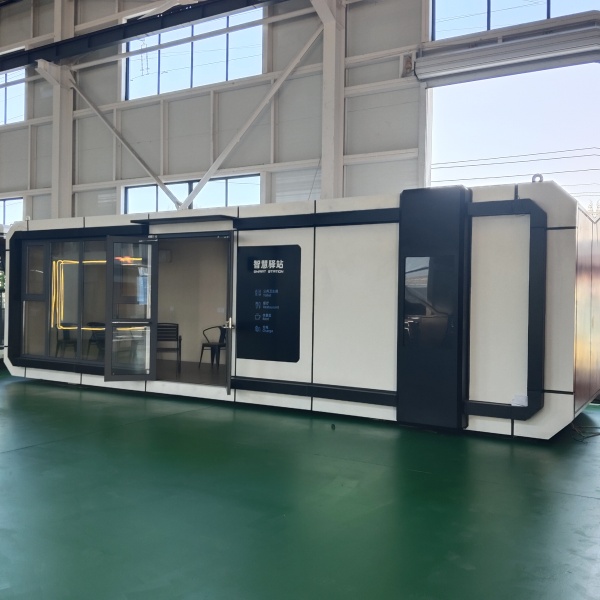 Modular modern movable apple cabins, customized high-end folk houses and portable bedrooms, delivered as a whole
Modular modern movable apple cabins, customized high-end folk houses and portable bedrooms, delivered as a whole -
Two Wing Folding Expandable Container House
-
 The foldable container house with side wing design can be quickly set up and is suitable for various environments.
The foldable container house with side wing design can be quickly set up and is suitable for various environments. -
 Luxury Foldable Two Story Container House for Glamping Resort and Villa Hotel
Luxury Foldable Two Story Container House for Glamping Resort and Villa Hotel -
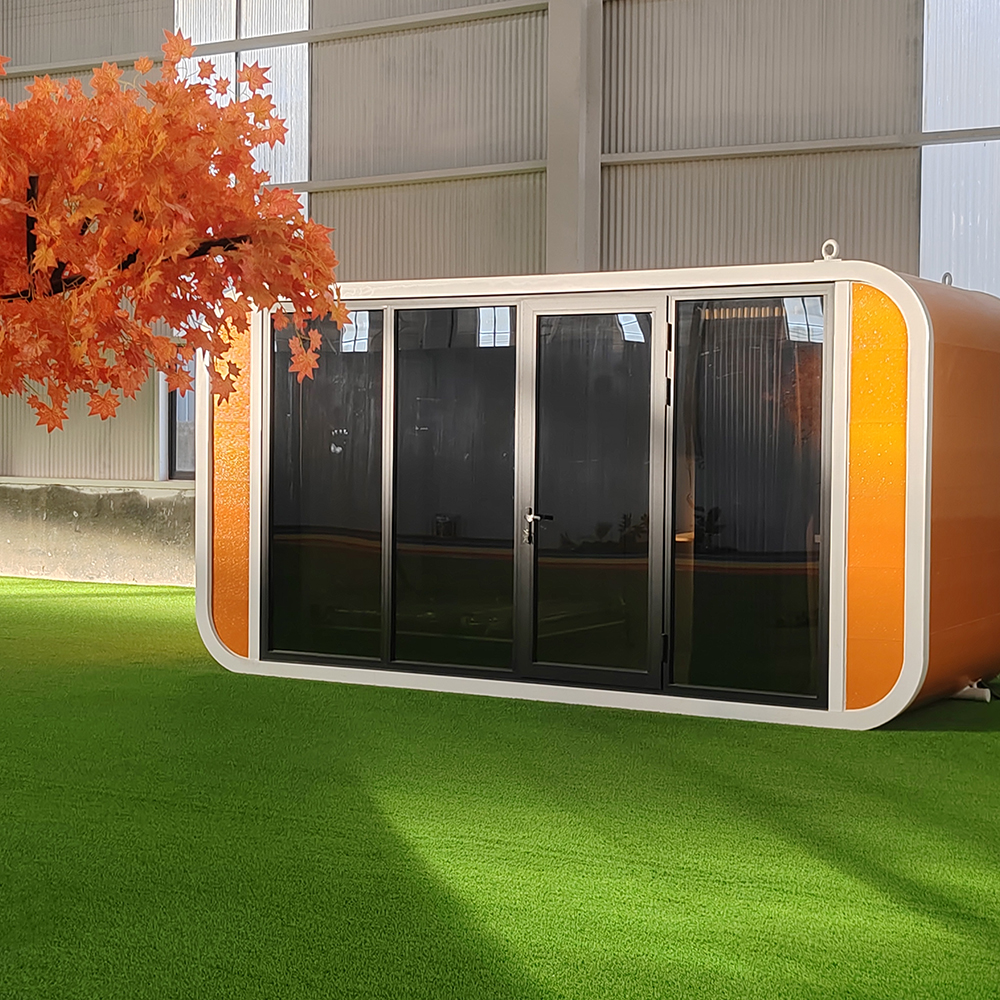 Luxury Prefabricated Living Container House Modular Glass Tiny House Prefab Container Home Apple Cabin
Luxury Prefabricated Living Container House Modular Glass Tiny House Prefab Container Home Apple Cabin -
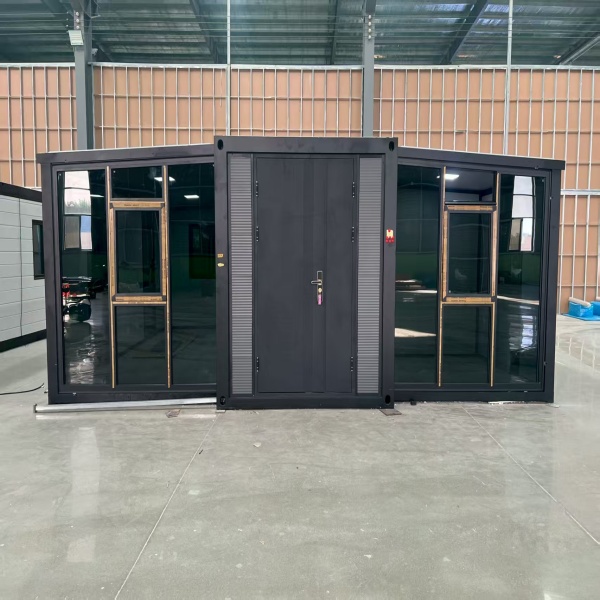 Customizable Office Mobile Home with Flat Roof and Double Wing Expansion Box, Convenient Container
Customizable Office Mobile Home with Flat Roof and Double Wing Expansion Box, Convenient Container -
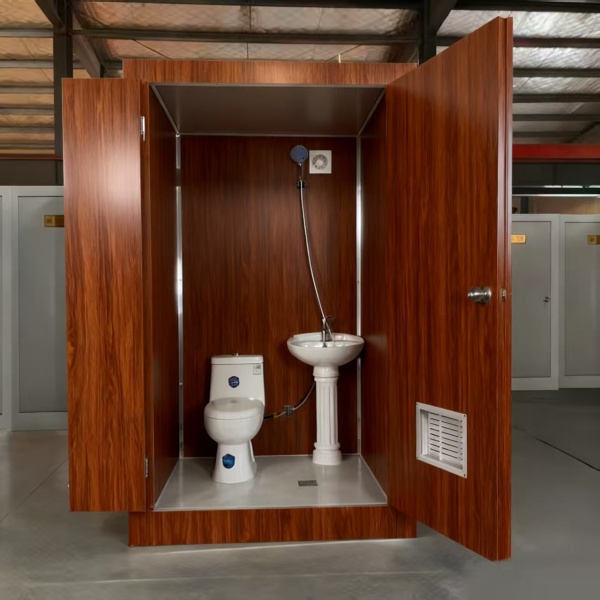 Portable outdoor camping bathroom, mobile toilet, prefabricated modular villa & rental of outdoor and indoor showers
Portable outdoor camping bathroom, mobile toilet, prefabricated modular villa & rental of outdoor and indoor showers -
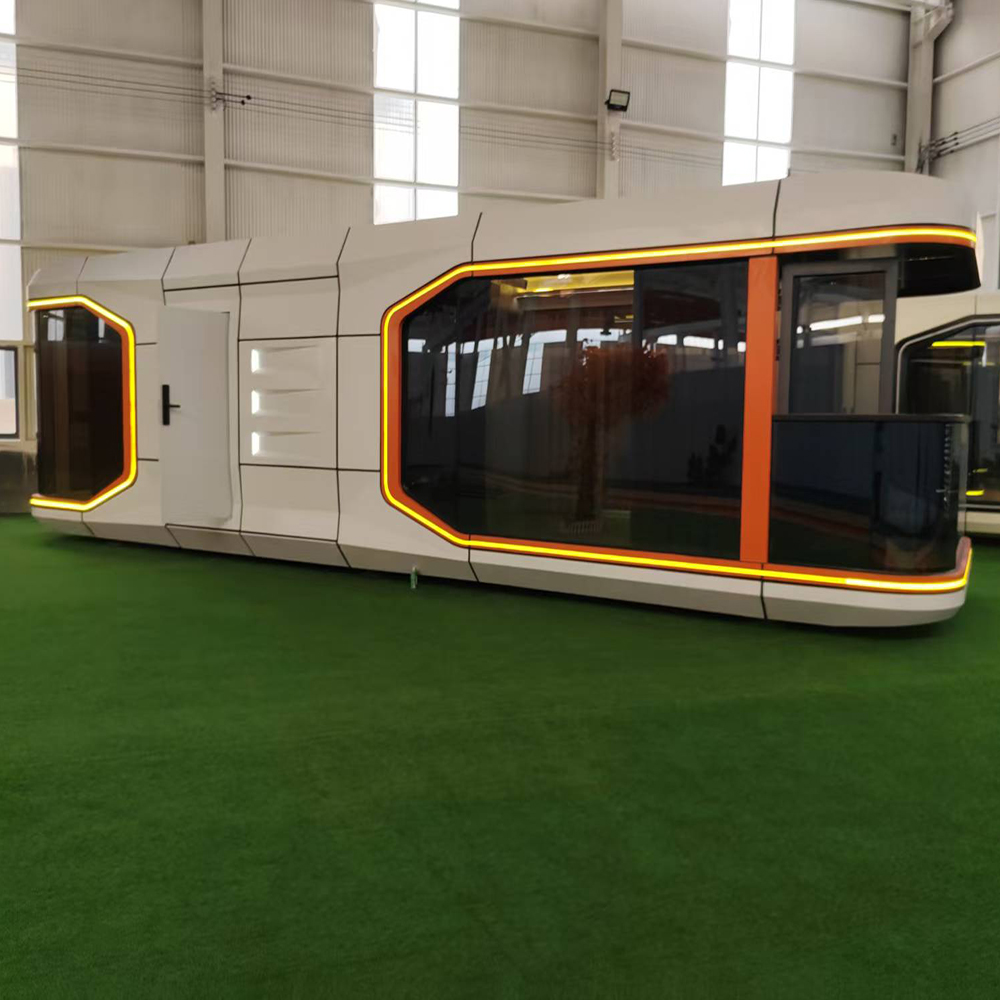 Standard Modern Camping Pod Space Prefabricated Portable Mobile Capsule Room Hotel Bathroom Prefabricated Spaceship House
Standard Modern Camping Pod Space Prefabricated Portable Mobile Capsule Room Hotel Bathroom Prefabricated Spaceship House -
 Reasonable Price 1 Bedroom Modular Container House Folding Container Home for Villa or Apartment Use
Reasonable Price 1 Bedroom Modular Container House Folding Container Home for Villa or Apartment Use -
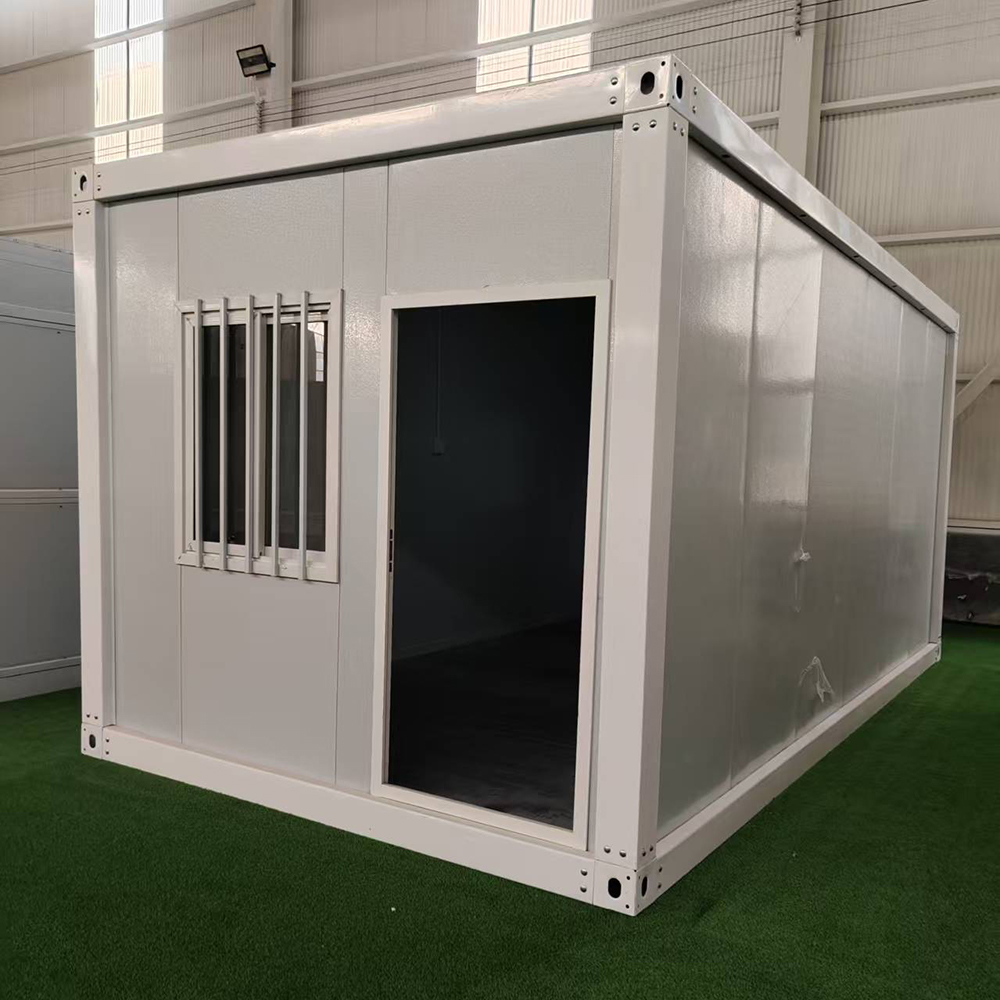 Folding Container Moving House Modular Office Container House Prefab Container for Outdoor Use
Folding Container Moving House Modular Office Container House Prefab Container for Outdoor Use -
 A container house with a terrace and double-wing folding design, suitable for various purposes such as offices, meeting rooms, living rooms, etc.
A container house with a terrace and double-wing folding design, suitable for various purposes such as offices, meeting rooms, living rooms, etc. -
 Movable Prefabricated Container House Villas Modular Portable Homes 1 Bedroom Container House Offices Apartments
Movable Prefabricated Container House Villas Modular Portable Homes 1 Bedroom Container House Offices Apartments
Related search
Related search- expandable container house with solar energy
- Buy mobile expandable prefab house prefab home 19ft x 20ft
- China apple barn cabins
- China Apple Cabin
- China space house capsule
- China space capsule
- Buy portable folding houses
- 20ft expandable container house
- prebuilt container house
- pre fab 2 bedroom prefab container house homes luxury











